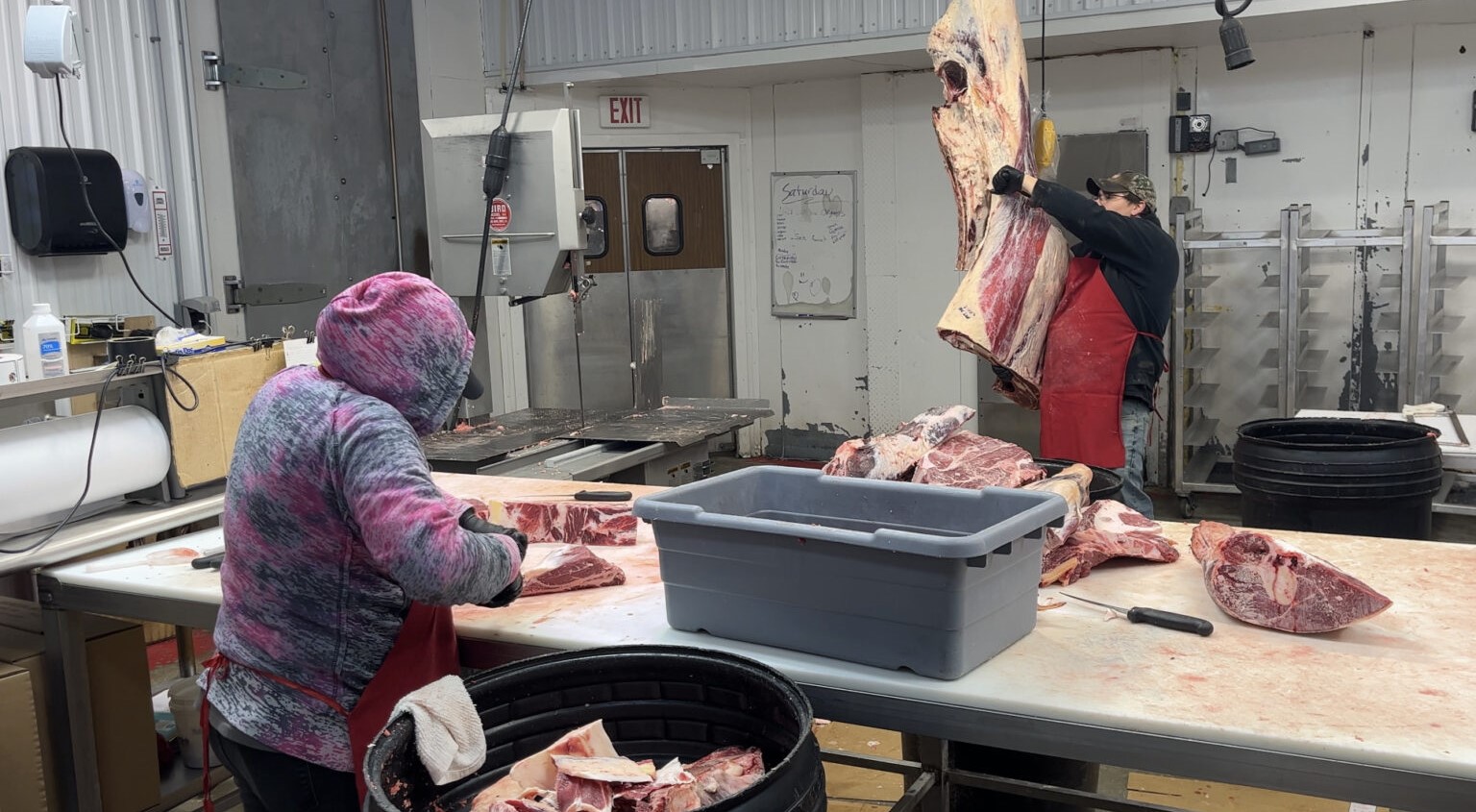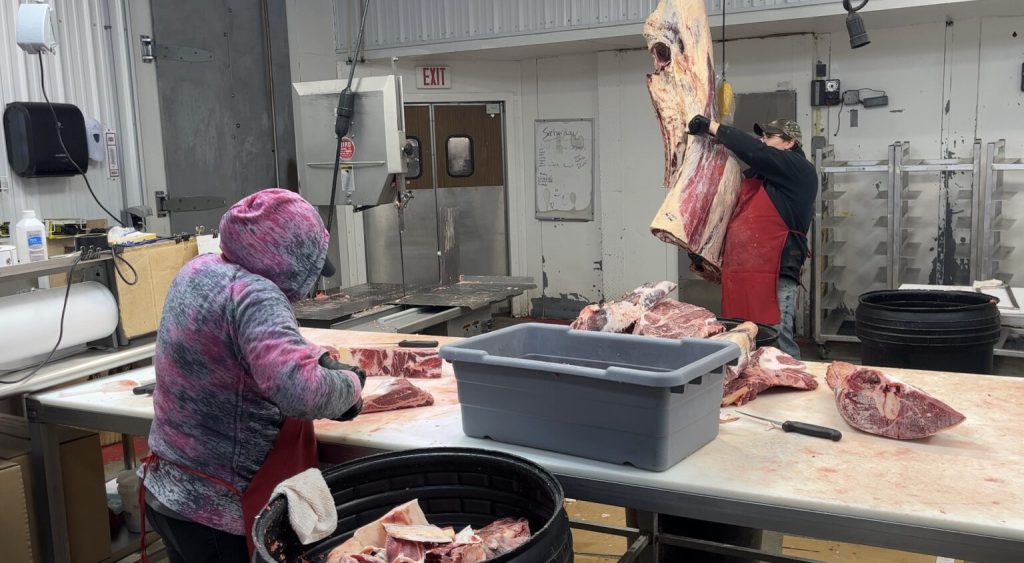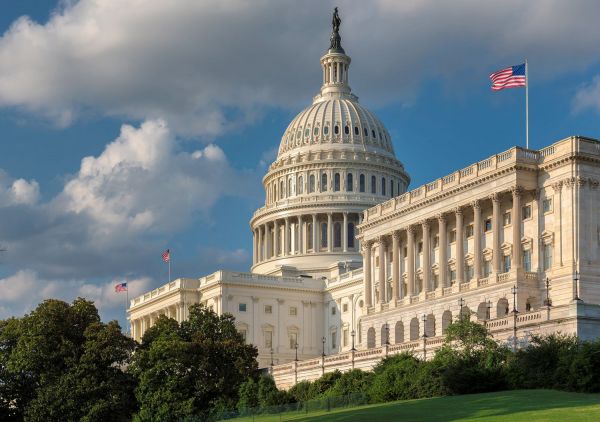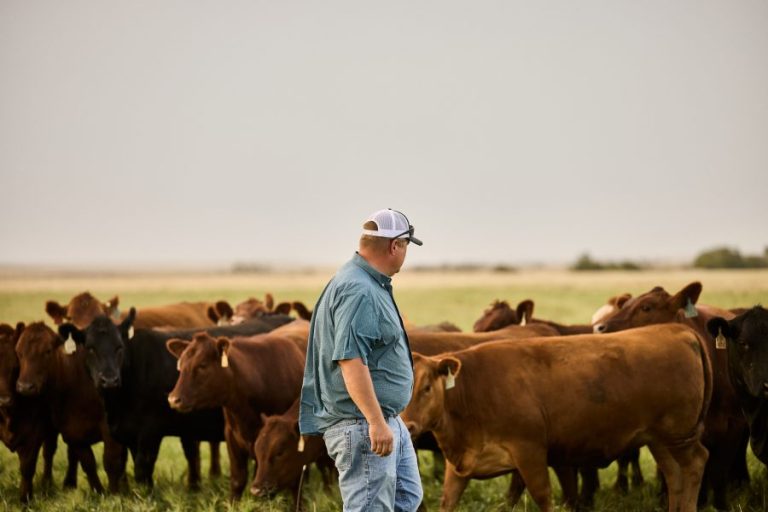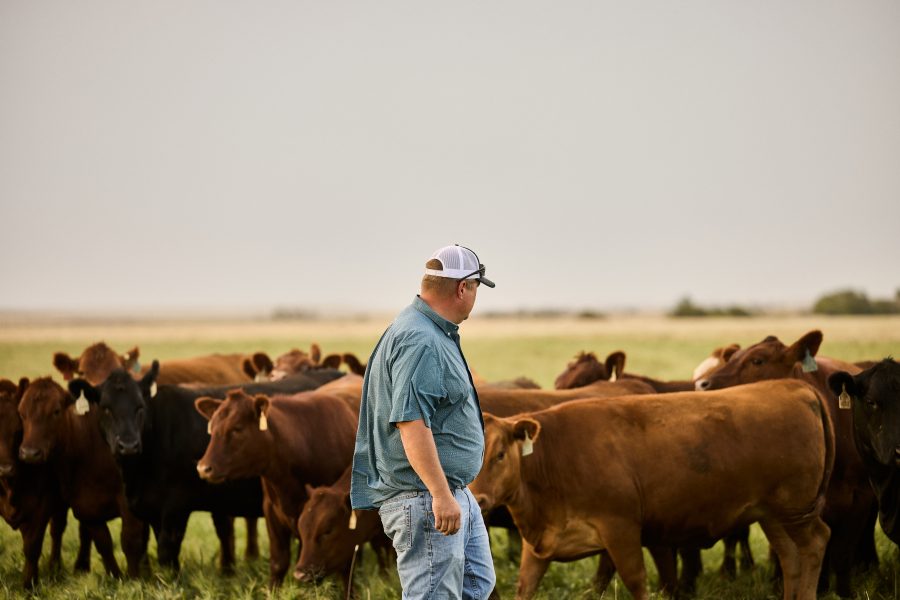CLARK, S.D. — Drive any direction in South Dakota, and it won’t take long to find cattle. The same can’t always be said for South Dakota-raised beef products, but that’s changing.
After the COVID-19 pandemic exposed problems with large meatpacking monopolies, entrepreneurs are capitalizing on government grants to put more local links in South Dakota’s meat supply chain.
Randy Gruenwald, owner of Dakota Butcher, is one of the people leading the charge.
Founded in 2009 in Clark, Dakota Butcher has expanded to five additional locations in Madison, Pierre, Rapid City and two in Watertown.
“We are hoping to get a location in Sioux Falls next,” said Gruenwald, South Dakota’s 2020 Small Business Person of the Year.
He slaughters and processes cattle at his Clark location, but he doesn’t have enough capacity there to supply all of his store shelves. So he buys meat from regional processors to supply the other locations.
Gruenwald hopes that will soon change. He was approved for a $200,000 federal grant to expand the Clark location, which would allow him to process meat that can be sold across his network.
Dakota Butcher’s success as a small- to mid-sized meat processor is a rarity in an industry dominated by global conglomerates. The U.S. Department of Agriculture reports that four companies – Tyson, JBS, Cargill and Marfrig – control 85% of beef processing.
During the height of the pandemic, production slowed at some major meatpacking plants when workers got sick. Grocery stores ran low on beef, and prices shot up. When consumers went looking for local lockers and processors to fill the gap, there weren’t enough to meet the need.
Gruenwald is happy to be filling part of that void.
“Ranchers love it,” he said. “They like seeing more options out there.”
Federal grants
The Biden Administration’s American Rescue Plan Act of 2021 allocated $1 billion to help expand the capacity of small and mid-sized meat and poultry processors around the nation, through several programs. About $27 million has been awarded to South Dakota so far.
The bipartisan Butcher Block Act was implemented as part of the American Rescue Plan Act’s $1 billion allocation. The act proposed grants for new and expanding operations
Wall Meat Processing received a $3.3 million grant for a new facility in New Underwood capable of processing 4,000 livestock per year, including cows, pigs, sheep and bison.
A sub-program for product inspection awarded grants including another $185,430 to Wall Meat Processing, $197,209 to a Pine Ridge Reservation bison startup, and $200,000 to Bad River Jerky in Chamberlain.
Another sub-program awarded grants for revolving loan funds to serve processors who want to start up or expand their processing capacity. The Farmers Union Foundation, which represents South Dakota and other neighboring states, received $834,000. And in South Dakota specifically, GROW South Dakota received $8.13 million, Planning & Development District III received $4.48 million, and the West River Foundation received $6.99 million.
Up to $50 million is allocated to tribal nations for projects related to meat from animals traditionally harvested by Native Americans, such as bison, reindeer or salmon. The USDA has not yet announced which tribal nations have been awarded grants.
South Dakota Governor Kristi Noem also funneled $5M in Coronavirus Relief Funds into the South Dakota Department of Agriculture and Natural Resources in 2021 to provide grants to small meat processors.
Ranchers are excited
While more small and mid-sized processors “don’t have much of an effect on the overall supply chain,” more of them are great news for the state’s ranchers, according to Eric Jennings, a Spearfish, S.D., rancher and president of the South Dakota Cattlemen’s Association.
“Because it’s an opportunity to utilize these plants for direct sales, which can add value to their product,” Jennings said. He said that cuts out middlemen.
Historically, South Dakota ranchers have faced challenges in getting a fair price for their livestock, often needing to work through large processors and retailers that dominate the industry, he explained.
In 1977, the largest four beef-packing firms controlled just 25% of the market, compared to about 85% today. And as recently as 1997, Americans bought 21% of their groceries from the then-four largest retailers. In 2019, the top four chains sold 43% of all groceries, with Walmart alone commanding a quarter of the market.
Such consolidation tends to hurt ranchers at the bottom of the supply chain. In 1990, ranchers received 59 cents of each dollar spent on beef while retailers received 33 cents; today those figures are 38 cents and 51 cents, respectively.
In addition to helping ranchers financially, localizing the meat supply chain has ancillary benefits – like shorter distances to transport cattle, resulting in reduced greenhouse gas emissions; new facilities creating local jobs; and higher quality meat for South Dakotans.
“The South Dakota cattle that end up going through those large processing facilities, the high-quality meat goes to the coast or to the hotel and restaurant trade,” Jennings said. “And so, buying locally, you’re able to capture that high quality, local beef before it leaves the state.”
Ensuring feasibility
The state’s U.S. senators are also involved in efforts to strengthen the meat supply chain.
Mike Rounds is sponsoring and John Thune is co-sponsoring a bill that would allow meat and poultry products inspected by state programs to be sold across state line.
Rounds said in a press release that while South Dakota producers raise some of the highest-quality meat and poultry in the world, state-inspected products are limited to markets within the state “even though they are required to go through inspection at a state facility that meets or exceeds federal inspection standards.”
“This is a disadvantage to producers and consumers alike,” Rounds said. “Our bipartisan bill would allow these high-quality products that pass federally-equivalent state inspection standards to be sold across state lines, which would open up new markets for our producers and give consumers more choices at the grocery store.”
